'We Started From Zero and We Could Go Back to Zero.' Interview With Baldur's Gate 3 Devs - Swen Vincke and Adam Smith
Some people are much more than great devs. They are a joy to talk to. This is the case with Swen Vincke and Adam Smith - people from Larian, responsible for Baldur’s Gate 3. We spoke about BG3 itself, RPG, industry, and the tough past. To say the least.
One huge conference about games (Digital Dragons, to be specific). One small, but air-conditioned white room bathed in sun. And four grown men chatting about games, industry, fantasy, and the future. About the good, the sad, and the horny. About Larian and its massive RPGs.
Two of those people are developers of the titan called
Baldur’s Gate 3 - you may have heard that title somewhere - Swen Vincke (Larian’s man-in-charge) and Adam Smith (Writing Director). Both were questioned by Hubert Sosnowski and Adam Zechenter. See below what happened, when it all clashed together.
Hubert Sosnowski: What would be the funniest joke in the world if its author was Larian and not Monty Python?
Swen Vincke: Okay, it's a fun question. Mummy wakes up in his tomb, looks around, and sees that all his stuff is gone. He says: “What the heck happened?” And then finds traces that somebody redistributed his wealth. Mummy says: this can’t be. And then goes on a rampage... My joke isn’t going anywhere... Well, my head of narrative is American, and the moment we'd wake up he just said the British took it all. [Laughs]
HS: Okay, gentlemen. According to the Monty Python rules, you’ve just basically killed all the people in the room. Since we’re in the realm of fantasy, I need to know. Would you resist or serve the mind flyers?
Adam Smith: I would resist. I like the independence of thought, so I find the whole collective of the mind flyers incredibly creepy. I don't like anyone telling me what to do, really, which annoys Swen sometimes. I obey only certain people. But our lead writer, Chrystal, has always been a big fan. She believes that the mind flyers are good for us, and they will take away all of our pain and sorrow, and they will control us, and then that's fine because then we don't have to think. That's better. She's a big fan.
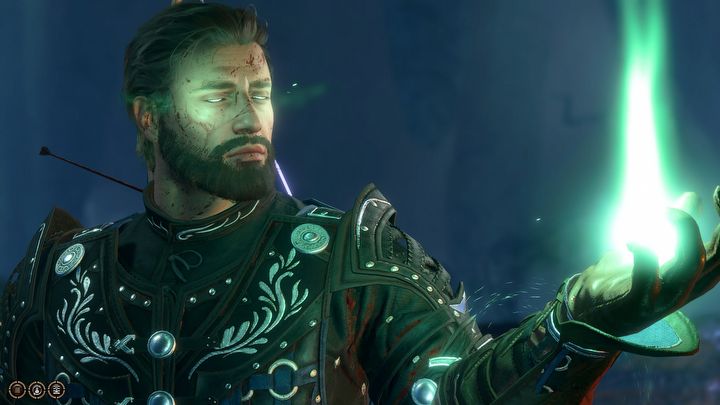
Baldur’s Gate 3, Larian Studios, 2023
SV: I would resist, obviously. But I did like the fact that we made it attractive to go all in. That was the entire idea behind it. The temptation of evil and the powers that it gives, even if you have to become part of a hivemind. The thinking was: if we can get people to accept it, that's a great thing. Right? But I would always resist.
AS: I gotta ask you. What about Dark Urge? Would you embrace it?
SV: I would absolutely embrace the Urge. The entire world is gonna bow to me.
HS: I knew it! Before the interview started, we had the theory that Dark Urge is the dark part of your subconsciousness put into the game.
SV: [Laughs] Oh my God.
HS:
I'm asking all these questions because imagination and a wild sense of humor in your games come with many stories about suffering and sorrow. Like in Fort Joy in Divinity: Original Sin 2 or like whatever the mind flyers wanted to do with humanity. It looks like this balance of tragedy, fantasy, and comedy comes from reality. And that helped Larian go through the hard times because you had plenty of them.
SW: Well spotted. If you can't laugh at it, what are you gonna do? This has always been very, very true to our core. Even in the darkest days. The humor was sometimes very black, but it was always present in everything that we did. If you put the tragedy into a game, it creates a good setting for making a hero. Now you can do something about it. Or make it worse. It’s up to you. That's why you'll probably always find back really evil people that you can go and do things with.
AS: And the one that sticks out and got his own rap song was Wulbren Bongle. I like that character a lot because what he's saying is the kind of thing a hero would say. He's a liberator, he's a freedom fighter. He's all these things. But he's also just a prick. Sometimes that's important because he might want to do some of the same things you, as a heroic player, want to do. And then you see his take on it. You see the way he goes about it and suddenly you question it. That's an interesting dynamic.
HS: Yes, I totally see that. I was talking about this balance because your company had its share of sorrow. What were the worst moments? Swen, you mentioned some of them in your lecture [about necessary layoffs and near-bankruptcy after the release of Divine Divinity and later after Divinity 2: Ego Draconis], but, like, the first thing you think about when I'm asking both.
AS: I've only been here for
Baldur’s Gate 3, so for me, it was Covid. It was very difficult for many of us. I had it relatively easy in terms of people close to me getting sick. But we were separated from each other. We're very sociable as a team. For me the hard part was not being able to spend time with colleagues, seeing people miss out on a big chunk of their lives.
The cinematic team for example is a bunch of very young people. There were points when I thought: I'm old, right? I've already lived pretty well, but some of these people were 23 or 24. I'm losing one of those years and not seeing anyone during it, that's odd.
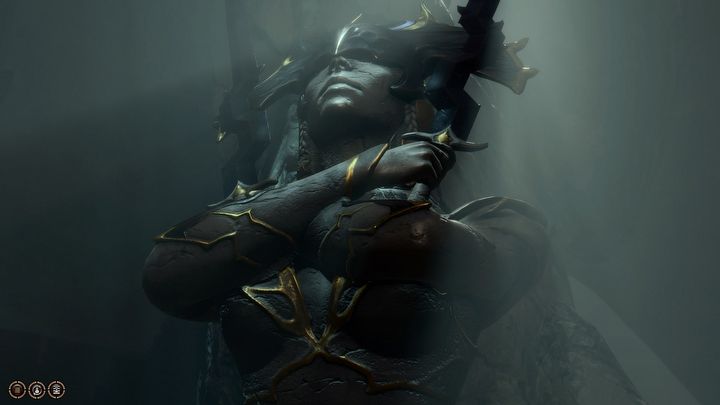
Baldur’s Gate 3, Larian Studios, 2023
It was a really tough time. During that period you really saw how much we rely on each other in the communication department. Things break a lot more quickly if you can't see other people's screens. One of my favorite things is getting a coffee. Every time I do that, I have to walk past so many departments. When you have to engage with people just by the nature of being in the same building, you see the screens suddenly. Sometimes you notice something and say: “Oh, wow, this is amazing.” And then you tell everyone else about it, and then someone says, “Well, this is amazing, but it's gonna break another thing.” Then they get together and they fix it and make it work. I missed that a lot.
HS: But you eventually came back to the office.
SV: Yeah, we're all back inside of our teams. I think the worst thing is losing people on the team. We couldn’t pay our co-workers after the
Divine Divinity was released. Then, after the
Divinity: Original Sin, Kirill Pokrovsky passed away. He was our composer, who made all the music until then. I wish he would have lived and seen the success now. He was fantastic. He was a good friend. We also lost Jim [Southworth], our cinematic animator on
Baldur’s Gate 3. He was a fantastic man too. Those were really tough moments.
HS: I’m really sorry, I know it happened a while ago, but my condolences.
SV: Thanks. We are a larger company now, so you see a cross-section of life within the company because you have so many people there. So you see everything. Darker days happen when everything goes wrong. My first deepest point was losing the team after
Divine Divinity and then getting into the same situation with
Divinity 2: Ego Draconis. But that one, we survived.
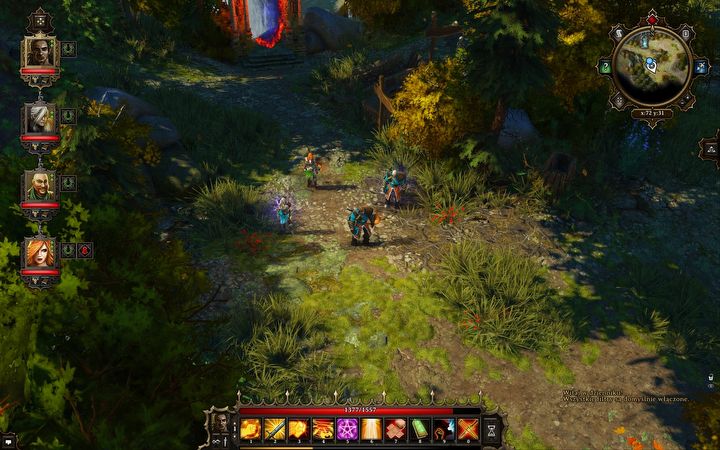
Divinity: Original Sin – Enhanced Edition, Larian Studios, 2015
HS: Did you imagine that you'll eventually come to the top of the gaming world, at least in the RPG department? Did you imagine that one day your game will be basically everywhere? It's a cultural phenomenon after all.
SV: I said it in my speech. You saw that [Swen Vincke said that he’s gonna make the best RPG in the world]. That was from six years ago. But honestly, I’ve never expected something like this. I don't think any of us did. We just tried to make a good game. Our biggest fear, actually, was that we were gonna screw up, because this was
Baldur’s Gate 3. There were so many emotional investments by so many people in this series and so much pressure on it.
AS: I had the double thing. There was that, what Swen said. And then I was a Larian fan before I worked for them. I thought that
Divinity: Original Sin 2 may be the best game Larian will ever make. I may be the one who comes in on the downward curve. We could screw this up as well. It was the legacy of
Baldur's Gate, the legacy of Bioware. And it was a legacy of Larian that was being created. Going into that was intimidating at times. The scariest times for me were the closer we got to launch. You could see this is so close to being brilliant and it's not yet. I mean, there were times when we looked at it and we thought: it's terrible. [Laughs]
Adam Zechenter: With all the early access feedback?
AS: There are so many things that can go wrong. It's so complicated. If one bit isn't working, sometimes there's a cascade effect and you just suddenly see: “Oh God, nothing's working anymore”. In terms of what we were putting into the game, we felt this is very good, but it doesn't matter a damn if it doesn't work. If your quest crashes, it doesn't matter how good the quest is. If the cinematic is fantastic but it breaks, it doesn't matter how good it is. The person at the other end doesn't care. They just don't see it. So you want to show everyone's work at its best, you know, that's really it. And there were points when you just couldn't see any of it.
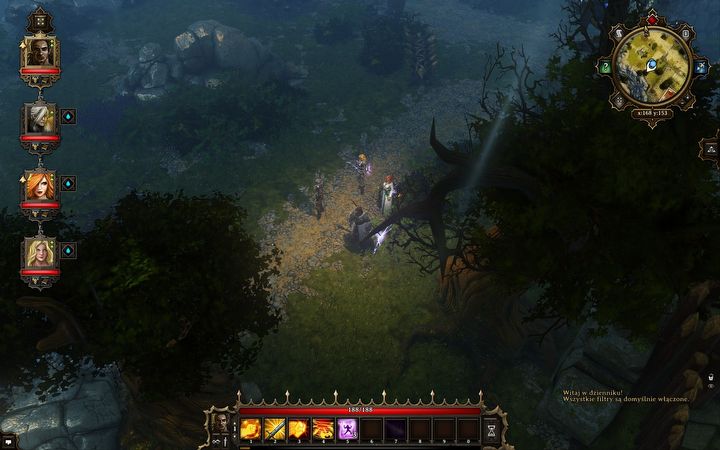
Divinity: Original Sin – Enhanced Edition, Larian Studios, 2015
SV: I was running the game in my head continuously and convincing myself: “It's not that, it's not that…” I’m not joking. Every single morning, every single evening, that was the thing that was going through my head and I was literally playing it from beginning to end. So I thought: “Is this okay? Are people going to enjoy this?” It was also not the easiest setting. We're putting a worm in your head. One of my biggest fears actually was that people aren’t going to empathize with it and they're not going to link to it. Then everything would have been screwed up because it was all for nothing.
HS: But you eventually managed and here we are. Now you've gained the trust of gamers all around the world. You've probably convinced even the old birds, I mean, fans of BG2 like me.
AS: Me too! [Laughs]
HS: …But you also have strong fear in the hearts of AAA developers. So how does this combo of emotions feel to you, the creators of something really massive?
SV: That's overrated, to be honest. That got overblown. I don't think we strike fear in the hearts of AAA developers. I don't think that's true.
HS: Maybe you're not often enough on Twitter.
SV: [Laugs] Yeah, I saw that conversation. It was ripped out of context because we talked to Xalavier. He's a very nice guy. And of course, you shouldn’t expect from somebody who has an indie budget that they're gonna make a big AAA, cinematic expansive RPG. But you can rest assured. You guys have
Witcher 4 coming. I'm sure that will be fantastic. You are going to see a whole bunch of other games that are going to be very huge. Like
GTA 6. That's also going to be massive and expensive. They can dwarf what we've been doing.
AS: Every single conversation I've had with an RPG developer since release has been them saying “It's cool cause it inspires us.” I'm sure behind closed doors some of them curse our name. [Laughs] I'm sure they do. But in the bigger picture, BG3 just shows what can be done. And somebody – I won’t name that person – said that this game gives a little bit of leverage in the next business meeting. When somebody says “That's too much,” we can say “It wasn't for them. And look what it did. It worked.”
I remember one thing about the release day. We were in different countries. We knew it was good at that point, but we didn't know what the numbers were going to be. I did not expect it to be anywhere near as big as it was. All of the younger people went off to a party and a few of us stayed behind in the office. We saw the number keep going up and up on Steam. And there was a moment when we were just relieved. It's a sentiment that is shared. We just said: “Well, we get to do this again.” That was genuinely great.
HS: So you're on high, basically.
SV: Well, we'll see. It’s a weird thing because obviously, we've been looking at everything that's happening, thinking: “What is our next thing?” We've been going through a roller coaster of emotions and decisions. I don't think you can ever predict what's going to happen. Our ambition certainly is to do better. We see many things that we can improve, so we'd like to improve those. Whether we are going to achieve it or not, you can't say that upfront. There's so much stuff that can happen around you that can affect the outcome of your development. We'll see where it goes. So you're not going to hear me say, we're on a high. We certainly did well, and we have the opportunity to make something new now. I'm happy about that.
HS: You went just into my trap. Thank you very much! Divine Divinity was a way different beast than DOS2 or BG3. Larian is experimenting from game to game. Is this kind of turn-based RPG the ultimate formula for Larian? Or is there something else in your mind that you want to do?
SV: So the answer is yes. I love turn-based strategy, but I'm not shy of action. You'll have to wait and see. I do consider the thing that you recognize the experimentation as a compliment because we do try stuff out. You don't want to keep on making the same thing.
HS: Yes, it is a compliment. So maybe one of those projects is mentioned in the lecture Excalibur?
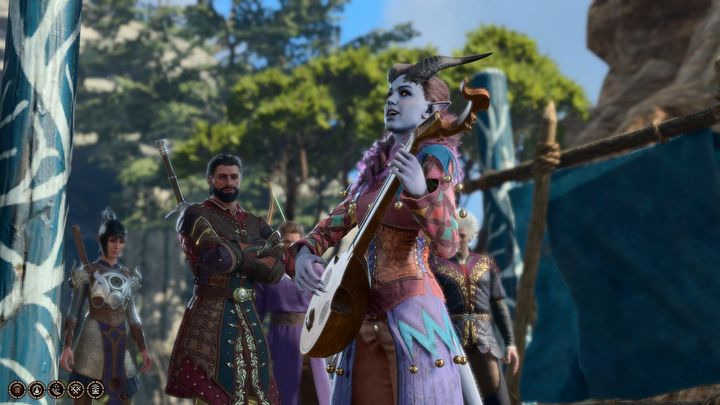
Baldur’s Gate 3, Larian Studios, 2023
SV: Certainly it is. The code name is
Excalibur [Excalibur is also the name of a new Swen’s puppy – it’s official since Vincke showed it during the Digital Dragons lecture].
HS: Can you tell me anything about the project at this point?
SV: We're working on it. If we're brutally honest, we're trying to figure out what the hell it is. [Laughs]
AS: This is a holiday. [Laughs]
SV: We have ideas. We have lots of little fragments.
AS: Actually, that goes to the point of being on a high. BG3 feels like it came out 20 years ago to me sometimes. And sometimes it feels like it was last week because the cycle just doesn't seem to end. It's weird because there was a big post-release sigh of relief. “It's out.” And then the award season started, that was just surreal. And then it just keeps going. Most of the time, we're thinking about what comes next. That grounds you very well, because once you're back working creatively, that's where your head is. You again realize how hard it is.
HS: Could one of your upcoming projects be related to the world of Rivellon or Divinity? I think there is at least one more story to tell about Lucian, Damien, and the team from Original Sin 2?
SV: Maybe. Maybe not. [Laughs]
HS: This, too, can land in the text.
SV: [Smiles] You'll see. If anybody from Larian at this point tells you this is what the game is going to be, they're lying. They don't know because we're trying a whole bunch of things. We have ideas, but we're an iterative company. So we iterate. We're trying things. We're experimenting.
HS: Since we were talking about your development, why did you decide to make a new studio in Poland? You know, it's a pretty wild country sometimes.
SV: It's very straightforward. You guys have a huge industry, so there's a lot of talent here and we need a lot of talent. So you put the two together. It also turns out you have a lot of RPG lovers over here. This match is very, very good. And then we visited here. We already work with some Polish developers, so we get along really well. I think it's an actual fit. That's the reason. And oh [he smiles] I was gonna say something corporate-like, but well, we can be quite wild sometimes as well, which isn’t very corporate.
HS: Okay, so you're developing. You're making progress on expansion on the other territories, literally. What's the ultimate dream game of yours?
SV: Well, I call that a very big RPG that will dwarf them all. It's an inspirational goal. That's it. I cannot say more, because it needs to stay in that dream-reality.
HS: It needs to be platonic for now.
SV: Yes, exactly.
AS: Honestly, that's why I was drawn to Larian. I sometimes look at my list of favorite games, and I wonder why they're not all RPGs. And then I realize it's because there aren't enough RPGs in the world. I want to make more role-playing games because I want to play them more. And, yeah, it feels like the richest space. As a storyteller, certainly you get to tell lots of micro-stories, and macro-stories. You get to hit different emotions. You get to do a thousand different things. Sometimes I look at it and ask myself: “How many of these do I have in me if I do this until I retire?” It's not many, but at the same time, in six years, we told a thousand stories. So it doesn't feel limiting. It feels very freeing.
SV: That's the stories that are published. Let's talk about all the unpublished ones.
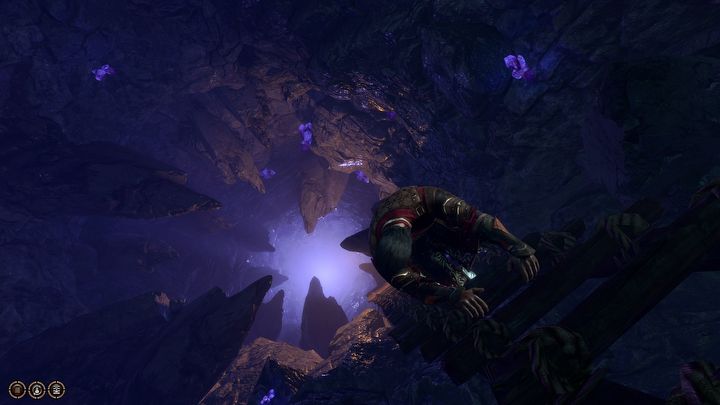
Baldur’s Gate 3, Larian Studios, 2023
HS: You went again into my trap. I love talking to you guys!
AS: If you watch Sven play an RPG, he walks into every trap.
HS: That definitely went on the record. You’ve talked about the untold stories, so how many “darlings” [components precious to the creator] did you have to kill while making your games?
SV: That's a hard one. Multiplayer in
Divine Divinity.
AS: I can't think of a specific story beat from BG3, so I’ll talk more about the process. The ones that hurt the most are the ones where you dig your heels in because you're personally attached to them. And you think: “I know this is good” Sometimes it is. What you're not hearing is: “I think it needs to go that it's not good in context.”
SV: The other thing is, some of the NPCs had to go.
AS: Yeah, but some of them come back as well. Sometimes it looks like this: “Oh, we did have that one thing that we threw away two years ago. Maybe we’ll modify it and change it.” But usually, it's about putting them out of their misery.
SV: I was just thinking of one thing. I really wish that Ketrick would have been a companion. He was supposed to be a companion.
HS: Yeah, I heard that all three of the villains are supposed to be companions. Speaking of which, I found something interesting about the story.
AS: Thank God.
HS: Nice one. When I played the BG3, I noticed that the most intense and emotional moment was the end of Act Two. It had the strongest clash and reveal. Was it on purpose to put it all in the middle of the game?
SV: It structurally was where it needed to happen. It's the midpoint. It's the middle of Act Two. It was very complicated to put it together. There were a lot of plot lines that needed to converge so that we could launch you again on the next part of your adventure. You would be surprised how much we cut, actually from Act Two. Well, we call that “Act Two A.” The Shadow-Cursed Lands is the first part of the second act. The amount of things that we planned to happen there was really staggering. We had to cut quite a lot of them, but it's on purpose. It was by design that this was going to be one of the moments where you had all the reveals. You discovered certain things and they were going to have an impact on you later on. We probably would have wanted to put more of this afterward, but I think it was enough as it is.
AS: One of the things that happens in the city is the companions get to get their emotional catharsis as well. A lot of them are prepping for the end and they can follow up and get there either highs or lows. So they needed space to breathe as well. Our biggest worry about Act 2 was if we shared too much information all at once. And you worry, how can a player care about it? It doesn't matter how cool the story is and doesn't matter how interesting the information is if players don't care and don’t engage with it emotionally. Then boom, it's gone. You know, like. And then you just turn into the mode: Okay, where do I go, and who do I kill? We want more than that.
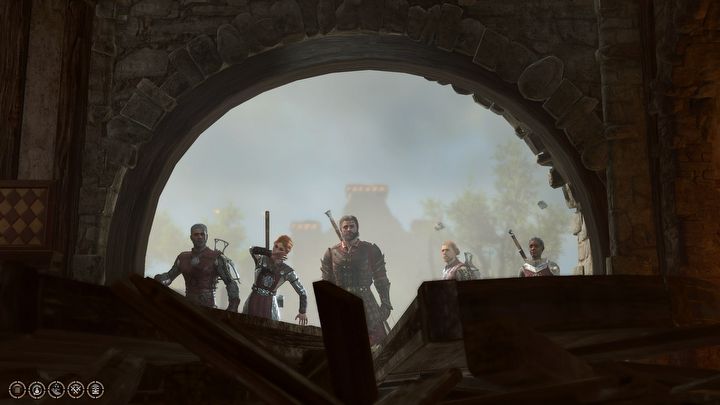
Baldur’s Gate 3, Larian Studios, 2023
AZ: We all know that most people aren’t finishing games. 70% of people are ending the game under 10 hours or 5 hours into it. What do you think about those people? Do you try to leave them with some kind of satisfaction?
AS: Not on purpose, but the structural approach that we take to narrative gives you that right away. You will always have an end to Act One. You will always have an end to Act Two. The individual quests are designed to have crescendos and endings.
SV: All of those are also treated as three-act structures. So you'll get it automatically. You will always find something to do. It doesn't matter who your player is, they need to have a good time. They're going to be spending time in your game and this is something we take really, really seriously.
AS: If they loaded the game and have half an hour or so, they still want to feel some satisfaction. And if they don't finish the game, then it’s ok. My wife started the campaign four times. She's never finished Act Two, because she's one of those people. She walks away for a week and then she wants to roll a new character. And she loves it, but I don't think she'll ever finish the game, which annoys me. But it’s exactly what Sven said. You know, we try to make sure anyone, who picks BG3, is going to find something that entertains them.
And one of my worries was always that D&D is really hard to get into. It's really complicated trying to learn how to play different classes. It's like suddenly learning a new ruleset. I still don't understand spell slots. I understand them logically, but I don't get why I want to engage with them. Fortunately, there are other ways. I want to use my magic, so I tend to stick to the simpler classes. I'm not very good, but I want to try everything.
So it's that as well. It's about making sure that the people who aren't as engaged systemically are still able to play a character where they can say: “I'm just gonna enjoy it.” The same goes for the story, by the way. A lot of time games will include a story mode and the combat's a lot easier. But for me, as a writer, it's really important to say if they skip the dialogue it's okay. I gotta make sure they still know what they're doing. And that's part of being a good writer. It's making sure that they still have enough that they can say: “I understand where I'm at; I know where I'm going next. I know where and what to kill.” You need to make sure that those people are being served as well. They still deserve a story that makes sense to them.
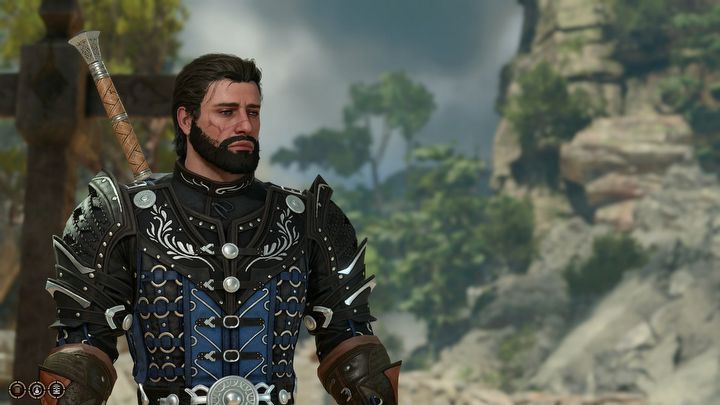
Baldur’s Gate 3, Larian Studios, 2023
HS: In the previous answer, you mentioned the engagement and emotions of players. You’ve created NPCs that stand in line with Minsc, Keldorn, Jensen, and all the old guard. People are hugely invested in your characters to the point where fan fiction came on par with 50 Shades of Grey. What does it take to make such a cultural phenomenon?
SV: People. The team, first and foremost. Many people worked on these characters, so it's not a singular person that's responsible for them. They have time to grow. If you compare the original version of the characters versus what you had in the final game, you can see that people have been spending time thinking about who these characters are, where they are, and where they come from. Another reason is diversity. There's a very diverse cast of characters that are in the game. They start reflecting against one another because they need each other to be able to do their thing.
We had hundreds of companions that we were looking at as potential pitches of what it would become. There could have been another group of them also. When I saw them for the first time, they were not at all how I imagined them visually. The artist picked the character up and said: “Well, we think that character looks like this.” There were discussions sometimes, but they ultimately ended up looking really like the ones that you could think of. They can grow inside of the game, I guess.
AS: For me, it’s that they can be influenced through agencies so that you feel you have an impact on them. And just to go back to the team comment - you have writing, you have the scripting that makes them work. You have performers, you have directors who direct those people in the booth. You have the music themes that go behind them. It takes some people. If you take any one of those things away, then you probably don't get the character. You don't get cinematics. And speaking purely from the writer's perspective… Some of the lines weren’t even close to being great in my head. Then I see the character performing in the game and I think: well, that's one of the best lines in the game.
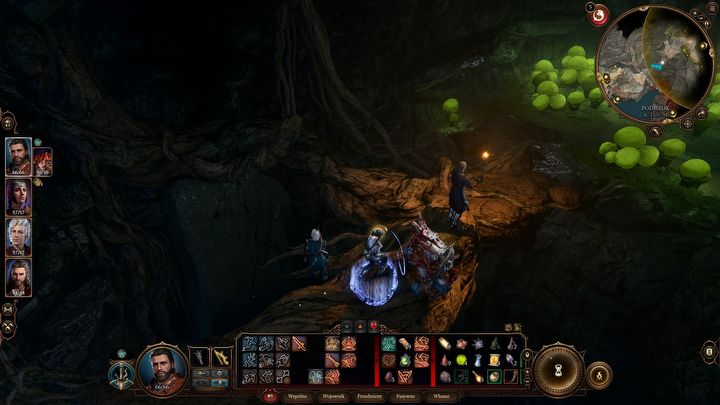
Baldur’s Gate 3, Larian Studios, 2023
HS: Speaking about choices and effort put into creating them. Weren't you tempted at least once or twice to make something straightforward? Just create a simple quest without any branches.
SV: It's a really simple answer to this. We are playing versions of this story, and then we ask ourselves a question: “What do I want to do?” And then: “Can I do it?” And if I can't do it, we have to put it in. We go until a certain point with that. But that's really the approach. That's the secret.
AS: I was trying to explain it to somebody: “It's like speed running the entire game in your head.” When you're writing a quest, you're asking yourself: “Where do I stop caring? When does it break? When does my choice space vanish?” I really would love sometimes to write something very straightforward, but it wouldn't be in an RPG like this. That's a different kind of writing. It would stand out. There are a couple of points in BG3, where I don't think we did our best work in terms of giving the right choice space. And I think you could spot them. Well, they do to me, anyway.
HS: So what was the hardest part of the story or script to develop and put into the game?
There may be minor spoilers in the answer to this question.
SV: To be fair, the core story took years to get it done. The problem is that there's so much stuff happening and it all needs to click into one another. Sometimes you want to solve a micro problem and it turns out to have huge repercussions across the entire thing. It was D&D and whenever the lore questions came in, we had some troubles. It may occur that something really is impossible in this universe. Are we going to break the rules? This could become quite a fight.
Because of all that the core stories have to be simple. The overall mission objective has to be simple. But you need to be rich enough to cover 100 hours, and so people need to be able to remember at all points what they need to do. You need to get to a certain place and then you have to kill these three guys in order to stop the brain. That's a spoiler, right? [Laughs]
HS: We'll warn the readers.
SV: Good. What I was saying is very straightforward. It's not emotionally engaging at all, but then you have to think about how all the characters are going to be present in the story that we are telling. And why does it become interesting? Getting that right took three years. We kept on iterating it over and over.
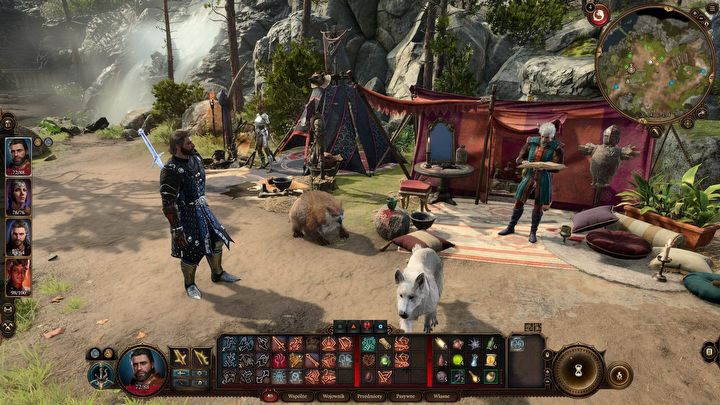
Baldur’s Gate 3, Larian Studios, 2023
AZ: Regarding Forgotten Realms, I'm curious about one thing. Why is Larian's version of this world such a horny place?
SV: [Laughs] Covid, man.
AS: Shall we leave it at that?
HS: [Laughs] It's a brilliant answer for the Internet. The point is here.
AZ: [Also laughs] Still, it would be interesting to elaborate.
SV: I never considered the game to be that horny. We wanted to do romance for the companions, but it wasn't intended to be horny, it was intended to be mature.
AZ: I'm on one of the biggest Baldur's Gate communities on Facebook. This page is on the brink of being banned. It's so, so horny play. So you were a bit surprised at how people reacted?
SV: Yeah, I mean, like, somebody showed me a video on the site for adults. I didn't expect that.
HS: …And it was just the cutscene from the game.
AS: Well, actually, some of them have been uploaded.
SV: To be honest, this is a very complicated question. There are many things that if I say them, they will turn out wrongly. [Laughs] One of the biggest compliments is actually that people get so engaged in companionship. It's a testament to the work of the team that's been doing it. They want to romance them. It's logical. People want romance. It's a big part of life. I guess that is how that came to be. I think many people found themselves there because it's very diverse. There's a bit for everybody to take in the menu that we offer if you want. It's a combination of all these things. The people like the characters. They can romance them. If they romance them, then that's going to take them to places because it's a mature game and I think that's perfectly okay. That became much bigger than we expected.
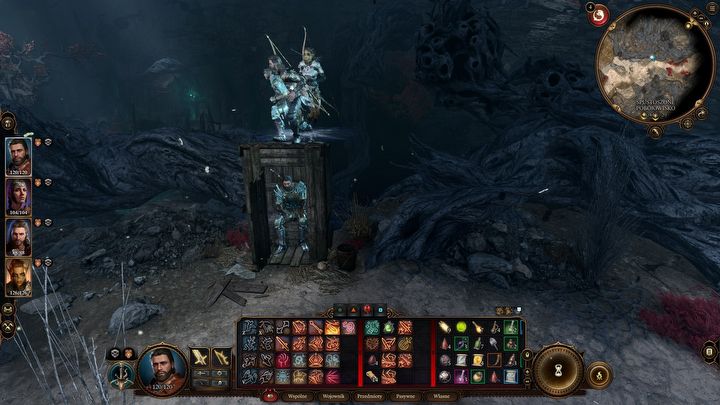
Baldur’s Gate 3, Larian Studios, 2023
AS: You know, it reminds me of the Olympic Village. It’s one of the horniest places in the world because there are many young, attractive people. Often single, because their lifestyle is very handy. So it gets very busy there. It appeals also to a bunch of adventurers who feel doomed. They think they might be on their last day, some of them at least. They're looking for something to keep them safe, to keep them happy. They're looking for joy. One of the things that we did well is getting across, that sometimes romance begins as a fling and then develops into something much stronger and much more powerful. Or it starts off as very tentative, and then it becomes something really beautiful. It felt logical to me. It never felt that it wasn't earned. Now, some of the fan art I've seen is neither logical nor earned. [laughs] That’s quite impressive.
AZ: I think everything started with the bear. I mean, before the release, there was nothing like this.
AS: The bear was just a scene.
SV: Also, nothing happens within that scene. I mean, it's all in your mind.
AS: So right before we showed that we were being live-streamed. We genuinely let the audience choose what they wanted to see. The bear version or the non-bear version. Before we played the bear version we watched it. They checked the version that isn't the bear, just to check if the cinematic was working properly. The second one is so much worse. I mean, it's so much more explicit. And I was sure, that if we show that one, we're in serious trouble.
SV: You have to understand that none of our business partners were actually aware that we put that all in there.
AS: Ask for forgiveness, not permission. That was the attitude.
SV: We actually fully expected phone calls afterward. Nobody had seen what we had done before the presentation. Neither console devs, nor Wizards of the Coast even. Nobody was aware. Our designers just said that we would have romance options.
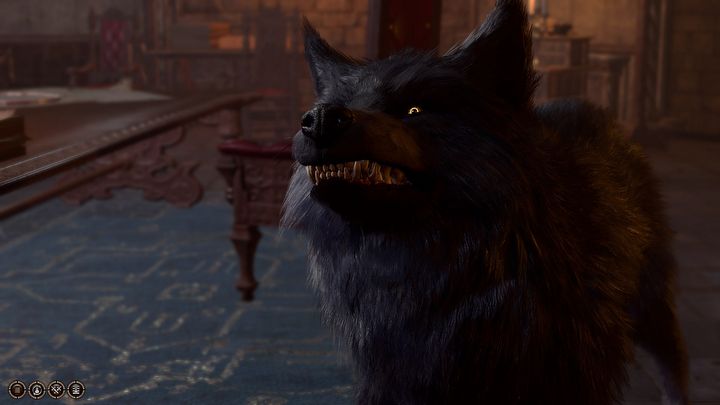
Baldur’s Gate 3, Larian Studios, 2023
HS: You’ve mentioned that this intensity in romances comes from desperate times. That you put your characters into.
AS: Some of it. Not all of it. Yeah.
HS: Will Larian always tell the stories about ending or saving the world? Most of your games play on the highest stakes. Is it a comfortable plot device to kickstart the story?
SV: It certainly is a comfortable plot device. I don't have a crystal ball, so I can't tell you what it's going to be in the future. But you need common causes if you want to do something with groups of players. Especially when you do it in multiplayer. So yes, it's a very easy device to work with. But we’ll see.
HS: Speaking of the next games and canceled games. You've dropped the idea of Baldur’s Gate 4 or the expansion. I heard that you've put in a lot of effort and time.
SV: Six years
HS:
Exactly. And you’ve had enough and wanted to do something new. But was there something else? Because I heard that the crew in Wizards of the Coast changed a lot.
SV: You want the unofficial reasons? [Laughs]
HS: We are totally not telling anybody.
SV: We started working on the DLC and BG4 actually, before we stopped. It literally wasn't for us anymore. I think one of the problems is - it's not our IP. It's not “ours.” Obviously, all that success attracts a lot of attention. But it was always important for us to be able to do our own thing, to maintain the Larian’s independence. And with BG3, the miracle was that we were left alone so we could do our own thing.
HS: So what does it take to stay independent, to still have your soul in such a huge industry while playing on such a high stake in the real world? You're pretty well known for your integrity right now, or people view you all like that.
SV: We're not seeing ourselves like saints or whatever, we're just trying to make our game. To be able to make our game, we need to have a level of freedom that we can only achieve if we are independent. We fight very hard for that independence and we're very hard to work with. I think I speak for pretty much everybody on the team. We really know what we like to play also. And you can see that if we're not achieving that, everybody in the team grows restless until it’s getting good. That's the most important bit. The company tries to create room and space so that we can make the thing that we would like to play with. I think that's a really good recipe for a game developer.
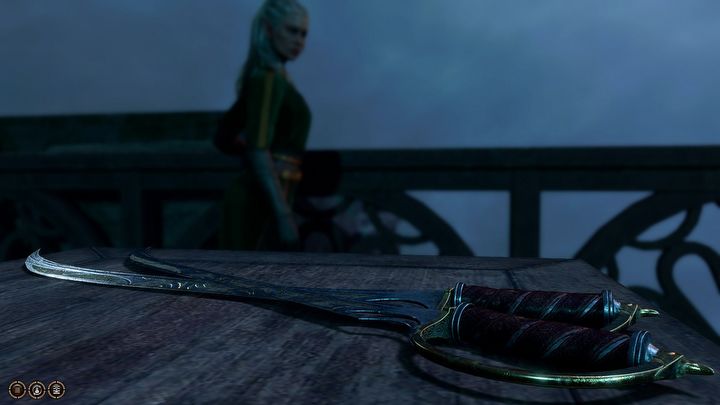
Baldur’s Gate 3, Larian Studios, 2023
And oh, my corporate answer is: my KPI is the game. I don't care about revenue. We started from zero and we could go back to zero. I hope not, because we do enjoy being able to do stuff, but it's really about just making the game really good. There are a lot of markets for it. People want to play good RPGs, so it makes sense to make them. It makes no sense to start forcing them through or trying to serve. The word I hate the most is the quarterly earnings in this industry.
It's done so much damage already in the history of video games. This is what happened to me multiple times with the games that we've been making. So I grew allergic to it. Whenever somebody starts saying to me: “Oh, it needs to be ready for that quarter” - I go bananas. It's literally like putting a flame in a gasoline station. [It’s an allusion to the situation when Swen Vincke stopped at a gas station and didn’t have the money to pay for gas because he spent it all on Larian’s crew paychecks]
HS: You want to do that?
SV: No, I don't… Well, in the game, yes.
AZ: That's the Dark Urge! We got you.
SV: [Laughs] I think it's [this “quarter” philosophy] done so much damage already. I walked from my lecture and I was meeting some developers. They have similar experiences. Some of them were not as lucky as I was. They had to go down. They had to start doing something else. And it's such a pity.
And it really doesn't always have to be in there. I'm not going to say, I don't want to say that the entire industry is rotten. That's not true. There's a lot of idealism in there, luckily, but there are certain parts that we could course-correct. We can say: “Hey, it doesn't always have to be about doubling or tripling the profit.” It could just be: “Hey, you know, take some more time, let the games do their thing and they'll make a lot of money too.” It's just a different approach.
AZ: How could you change it? What are the ways to correct this industry?
SV: I think it starts by respecting the developer. It's a cliche. but if everybody says that content is king, content should be dictating the rules. It should not work like this: “Oh, we need to double our profits. So we're going to add whatever microtransactions or milk it on iPad,” or whatever. It should really be about answering the simple question: how do we best serve the content? In this case, the content is the games. So how do we make better games? It's a really large industry and it's been growing. I don't think the growth is because we're going to do more marketing, we're going to do new business models. I think that the growth is because of the games that are being created. So make a lot of room for those.
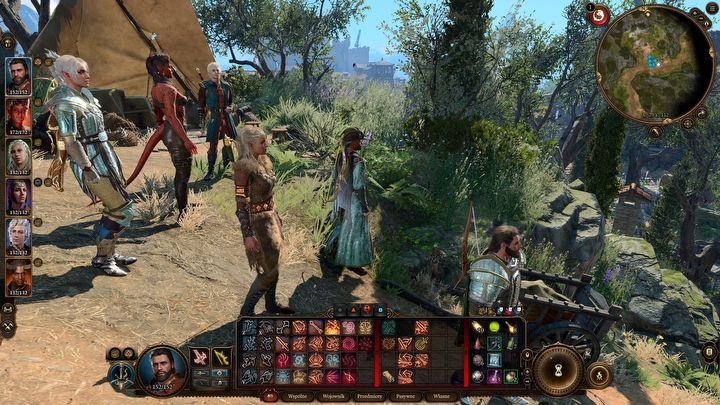
Baldur’s Gate 3, Larian Studios, 2023
HS: Do you think more people and companies will get to that point?
SV: Yes. It's happening already. There's a power shift that's been happening gradually over time. You will always have the larger corporations and sometimes that's actually really necessary also. But you see there are quite a lot of companies like CDP, which is actually a really good example of a company that took its own roots. You got Rebel Wolves here. I think you can expect big things from them, from what I can hear that's going on.
There are a couple of developers in the RPG space that we follow closely that you're going to see grow and they're all starting to publish themselves also. That's important because they're making the relationship with their players themselves so they're not beholden to corporate overlords. The milking isn’t working as well anymore and this is what's causing upset in our industry right now.
But it's a power shift that's actually happening. I hope that we will get to see more and more power in the hands of the developers who can bring their game to market. And hopefully, they can make enough money so they can have some reserve in order to try to make another game and if it fails, they still have an avenue.
HS: Does straightforward contact with players help in maintaining that identity?
SV: Yes. Who are you making games for? For your players. A long time ago Interplay had this phrase: “by gamers for gamers.” That's a really good attitude for a game development or for a games industry to start there. If you have somebody that's making decisions and they don't play games at all, I don't think they should be making decisions on what games are being made.
This is the way to avoid a particular way of thinking: we see that there is a slot here in the revenue, so we have to make a game. I'll give you an example. One of the worst I heard. It was a fabrication of a
My Little Pony game. With all due respect for
MLP. It was going to be a management sim and something with my little pony. It was a result of market research. It was going more or less like this: “There's a niche with little girls between that age there and there. And so this is why this game is going to be made. Here's $2 million.” It's ridiculous.
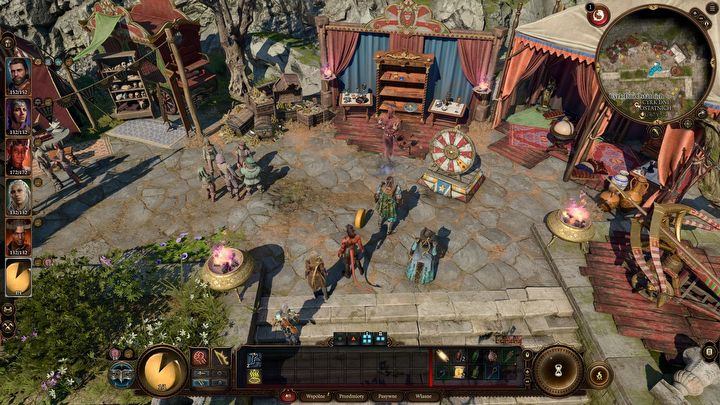
Baldur’s Gate 3, Larian Studios, 2023
And then you have this one guy who's been spending eight years trying to make his game. He's really far. He just needs a little break. He's not going to be able to manage to get that break.
HS: So you hope there will be more space for that one guy?
SV: Yes, and I think there already is, today. If you see where we come from, you’ll recognize, there's much more space for the one guy now.
AS: I can give you like ten games that I played this year already that blow me away. Like Balatro or Vampire Survivors.
SV: And you know what? When I started, that would not have been possible, if that one guy didn’t know the way to a green light committee where somebody had to say: “Yes, go for it” or “No, we're not going to allow you.” It's also why we have to be super careful that we never get somebody to monopolize the platforms that distribute the games. Because if that happens, then that gatekeeping can happen again. We can never allow that to happen.










































![Glory to Codexia! [2012] Codex 2012](/forums/smiles/campaign_tags/campaign_slushfund2012.png)







